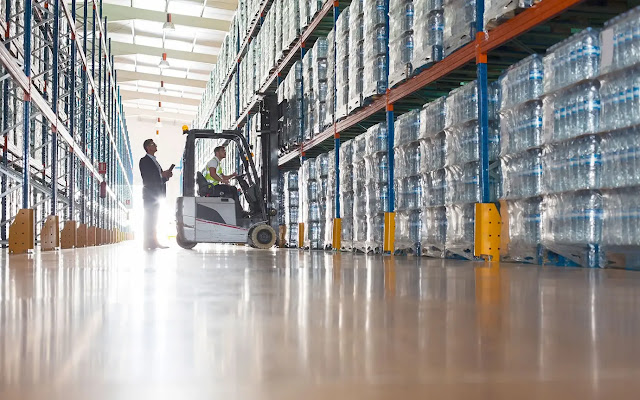Office Warehouse Rent and Different Types of Spaces
Well-defined specialties have continued to segment themselves throughout the world, and have become increasingly essential for many companies to fit this into their needs as their businesses grow over time. Most companies function within specific boundaries, the commercial industries especially require more space, and finding this space is important for improvement towards their success and efficiencies.
Companies can now choose between various office spaces and warehouses to meet their growing needs, ideally, there are 8 different types, namely, flex spaces, warehouses, manufacturing facilities, light and heavy industry sites, distribution centers, data centers, and general warehousing. We look at the three common ones below. As well as how renting works for these spaces. These are some of the best solutions for outgrowing space within any existing establishment.

3 Different Types of Industrial Spaces - Warehouses
One of the best examples of this is that of Amazon's warehouses. The company has over 180 different locations with what they call ‘fulfillment centers, which work hand in hand with their FBA program. These facilities are mainly used for both the storage and distribution of various types of goods. More about this can be found here this is what many businesses continuously strive towards – growth.
This is part of a planned space, which is very common within the supply chain industries and is one of the best ways for efficient storage of goods and equipment. The three main types of warehouse spaces include:
General Warehousing

The common concept that many establishments use is that of the general storage spaces. The demand for these is high and any industry or business that requires a big enough area for storage and inventory can consider these.
They may be a difference between the design and layout of each one and it depends on the location as well as the size of the business, as well as any additional requirements such as sliding doors or automated equipment.
Depending on the nature of the business, some are easy to customize. For example, those who operate businesses within the food industry would most likely require cold storage rooms or refrigeration boxes. Others such as those that manufacture and sell cleaning equipment, or pharmaceutical products, would require a more secure space to hold hazardous chemicals and equipment.
The inventory that needs to be stored will play an important part in the decision of the one you choose.
Distribution Centers
Logistics companies usually have distribution centers, and as per any other aspect, the location plays an important role in choosing the right one. these types of centers often run as part of a bigger one and will have one located in different regions or countries much like the example of the Amazon centers above.
They all coordinate with one another and the space allows the establishments to serve their customers located in different countries. Automated technologies, which have now become one of the most demanding aspects would include anything from blockchain technology to robotics and artificial intelligence: https://www.statista.com/statistics/1169394/global-warehouse-automation-technology-adoption/ these would then be an obvious inclusion in these spaces. Things such as closeness to airports or railway lines, and freeways or sufficient dock space, are all an essential part of the decision-making process.
Railway and Vehicle Terminal Facilities
Distribution centers often also have an additional arm, for the storage of items such as vehicles and trains. This is created for the sole purpose of distributing and transporting inventory from one type of vehicle to another, for instance from a truck to a ship or vice versa.
The terminal facility is there to hold items for a brief period until they are sent elsewhere. Their exclusive purpose is then to have a simplistic design with additional docking space and plenty of room for large vehicles and cargo.
What to Think About When Renting a Warehouse
When you are on the market to rent a warehouse, there are a few things you should be checking before choosing the right one for your needs. Some of these would include:
The Size: Think about the things you need it for and then decide how big a space you need. As one of the main considerations when looking for an office warehouse for rent this can hinder any final decisions if not fully considered. The overall square footage or the floor space is not the actual measurement of the building.
There are also considerations regarding how to access the stock, and how to plan its storage properly for optimum usage of space.
Goods being Stored: What would you be using them for? What goods are you going to store in it? These alongside other considerations like what type of weather conditions would be suitable, some products will wither in warm temperatures. If it is a climate-controlled storage facility then go back to your original business plan and think about the things you need.
In addition, access, location, and future plans are also things to look into when renting out a warehouse facility for your business.

No comments